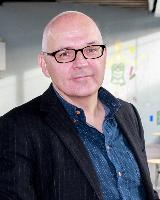Livable Life, Educational Theory and the Imperative of Constant Change
Thursday, 24 August, 11:00 - 12:00
Location: W4.15
In this presentation I problematise the idea that we live in an era of constant change with respect to education and educational research. I rather claim that what presents itself as change on supra-national as well as national levels, or even in classrooms, more often than not has to do with adjustments within a given reality rather than of a radical and profound change of this same reality. By challenging the very understanding of “constant change”, I show how the current state of affairs in education in many European countries is rather to be understood as a consequence of no change at all. I intend to show how this blocking of profound change in education creates a dangerous situation in which European democracies are increasingly leaving people behind. The response to this situation I will suggest is to mobilize radical forms of theory that address the inherent emancipatory and transformational character of education. This kind of theory, I argue, actually also addresses the central characteristics of a truly pluralistic democracy, since these are reliant upon diverse persons who are capable of instigating change as part of the exercise of freedom. Drawing on Jacques Rancière and Judith Butler the presentation will lay out some strategies that resist an anti-democratic and anti-pluralistic tendency within current educational trends and instead promote an education that is concerned with a ‘livable life’ (Butler 2015) for all.
About Carl Anders Säfström
Professor Carl Anders Säfström, School of Culture and Education at Södertörn University Stockholm, former President of Nordic Educational Research Association and Chair of the doctoral programme Philosophical Studies of Educational Relations, financed by the Swedish Research Council.
Carl Anders Säfström focuses on issues of responsibility for the other, justice, equality and freedom in educational relations as well as the contextual conditions under which we are formed as thinking, sensible and acting subjects in cooperation with others. He is also stressing the need, in thinking as well as in researching the world, to start with what the pragmatists call real problems.
His current research deals with the theory, practice and policy of teacher education, comparative studies of educational theoretical traditions, and aims at developing educational concepts for an educational theory and practice in a conflictual world.
